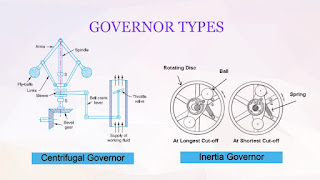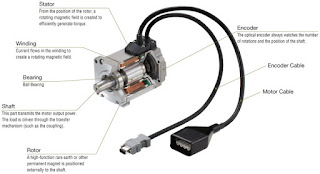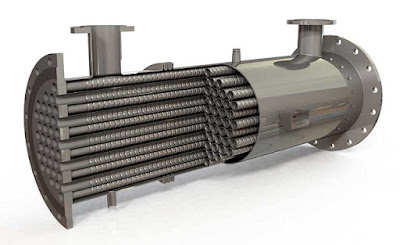Engineering is one of the most in-demand jobs in the world. And though there are tons of engineering fields that you can choose from, most companies look for similar requirements and qualifications in candidates.
Completing a course in Engineering and being awarded a bachelor’s degree may seem like a great accomplishment. Well, it is! But you are halfway through the ladder yet of reaching your dream of being an engineer. This means that there are steps to follow in order to get to where you really want to be.
In this article, we will go through the 10 skills that most hiring managers look for when hiring engineers – especially in the new graduates who offer no previous work experience.
10 Essential Skills That Hiring Managers Look For In Engineers
COMMUNICATION
Communication is vital in both personal and work life. Engineers must be able to handle different forms of communication. This involves technical, non-technical, oral, written, online or in person conversations.
In this day and age, telephone and regular mail are not the only forms of communication as they were a few years ago. We are now in the digital age and talking to people via mobile phones or the internet is a norm. Emails have replaced snail mails and conference rooms have been replaced by online meetings. Are you comfortable and confident about being interviewed on camera, on Skype?
Having great communication skills is vital in any engineering job. It is needed in brainstorming, project meetings, designing products and, most of all, problem solving. There is a high chance that you will interact with clients and colleagues at all levels in an organization and misunderstanding them can lead to big problems.
INTERPERSONAL SKILLS
Although this skill is interrelated with communication skills, interpersonal skills are somehow more of what people think of you the first time they shake your hand or talk to you.
This is one vital skill you need to develop every day if you want to succeed in your engineering career. As an engineer, interpersonal skills mean that you must be able to have a positive attitude towards yourself, others, and circumstances.
You practice your interpersonal skills by cooperating in the workplace, interacting with people in a friendly and professional manner, and being responsible and accountable for work assigned to you.
PROBLEM SOLVING
You cannot have problem solving skills without developing your critical thinking skills. In an engineering firm, having technical problems, misunderstandings and miscommunications are inevitable. These may cause damage or put a department, project, or the entire company at risk though, if people in charge have no problem-solving skills.
Having good problem solving and critical thinking skills are crucial in an engineering role. As an engineer, you must be able to identify, assess and analyze complex problems. You must make quick decisions when handling urgent situations. You must be able to offer and implement solutions to address a problem.
This is not something you learn overnight… not even in your 4 years of studying engineering. You learn these skills by experience and you just got to be ready for when you make mistakes. Sure, your education can help you use theories and formulas taught in school but once in the situation, experience and mistakes will teach you the best. Learn from your mistakes; embrace them.
TECHNICAL SKILLS
Having the right technical skills, for a job candidate, means having good education, credentials, and experience working in that same position or one that is similar. It includes being up to date with today’s technology and aware of industry trends and news.
It is also important that recruiters or hiring managers see that you are capable and willing to undergo additional technical training since most companies use different software and systems. Having strong technical skills will define your ability to identify and solve problems that arise.
Employers look for applicants who possess specific technical skills so do your research well before purchasing a new training course.
MOTIVATION
This means enthusiasm and commitment. You cannot have motivation without having those two. Sincerity is important to show the hiring managers that you are interested in the company and their vision, rather than just trying to get a job to pay for your bills.
Enthusiasm is important if you desire to advance in your career. It involves being open and able to express your desire in learning everything there is about your industry, your competitors, products, solutions, and more.
INDUSTRY KNOWLEDGE
You need to be knowledgeable in Science, Technology, Engineering, and Mathematics. These four subjects are the very foundations of any good engineer. It is vital in handling conversations with hiring managers.
Before you go to a job interview, it’s important to conduct an in-depth search on the industry, sub-industry, products & services that the employer offers. Preferably I recommend you do this industry research before you even put your resume together or fill out a job application.
ANALYTICAL MIND
You must have a strong analytical mind. Being an engineer will make you encounter different problems and situations. When you have a strong analytical skill, you will know how to approach almost every problem or situation that comes your way. This involves experimentation and testing to make sure that the project is within the budget.
ATTENTION TO DETAIL
Engineers always face extremely complex projects and attention to every detail is important to ensure the success of a project and make sure that nothing important gets forgotten, as that can potentially affect the entire project and reputation of the company.
TEAMWORK ABILITIES
You need to have the ability to work as part of the team. Most engineers work with a team and no engineer can work alone on a certain project unless you’re an independent engineering/design consultant. That means you got to be comfortable working with other people. This is vital in the completion of a project.
LEADERSHIP AND MANAGEMENT SKILLS
Engineers ought to be leaders and managers. Engineers are given different responsibilities depending on the project but sometimes they are assigned to lead and handle a team.
As a leader, you must be able to assess and utilize a member’s strength and ability in order to maximize manpower and build an efficient team. Getting along with others is just as important as being able to manage a process or project well.
You also need to be able to motivate others if you want them to follow your guidance. Leadership is a never-ending path and the ultimate success on your personal development journey.















Comments
Post a Comment